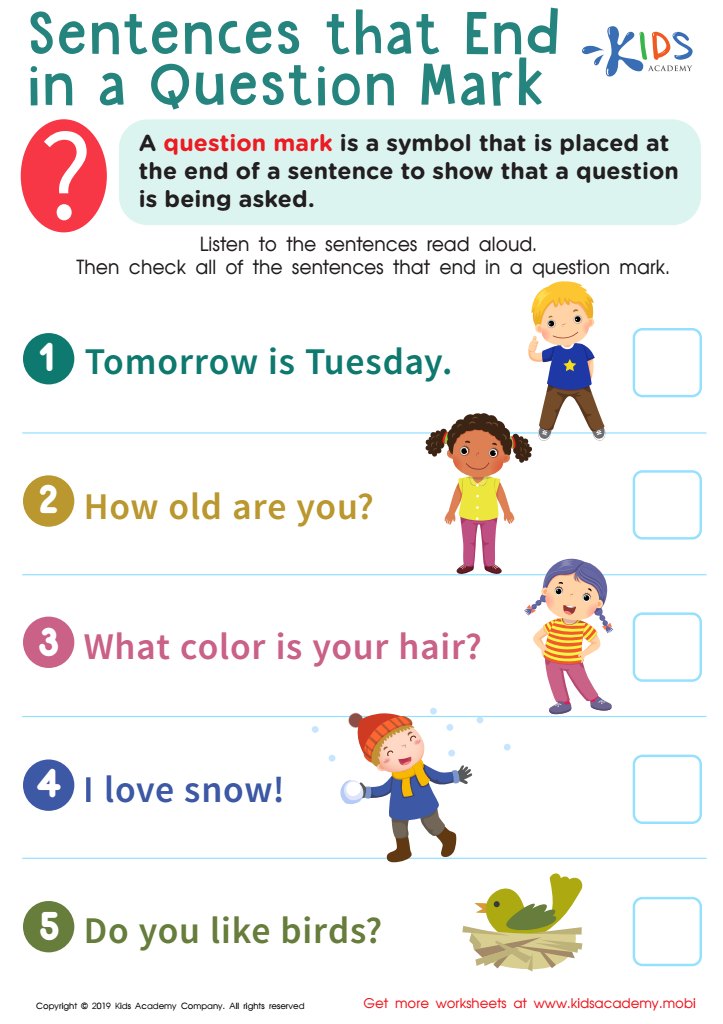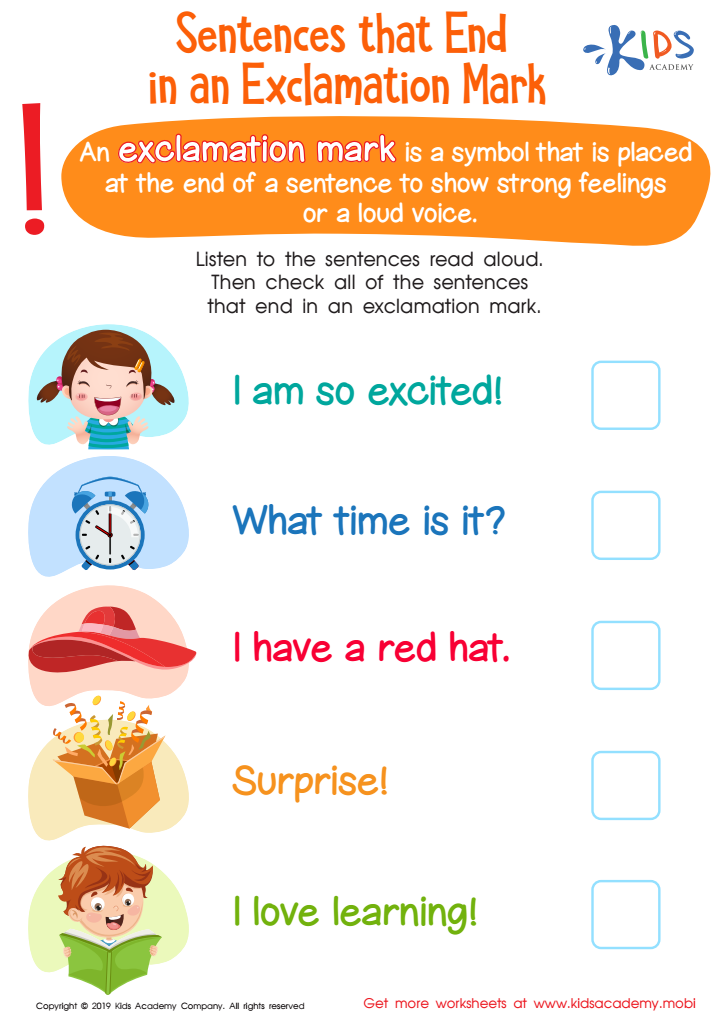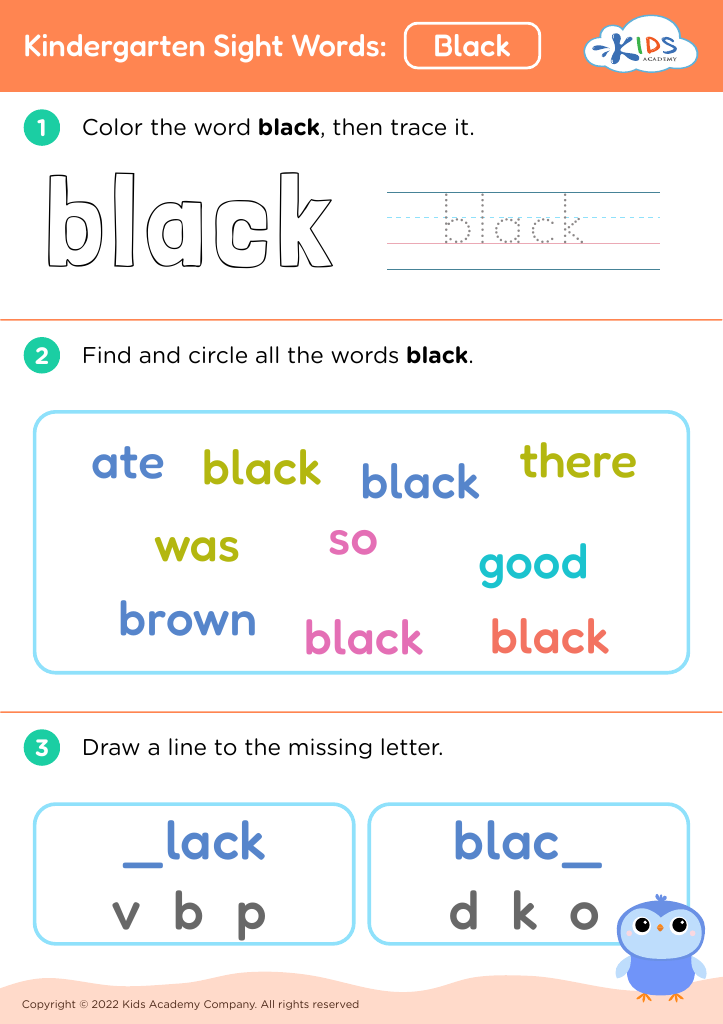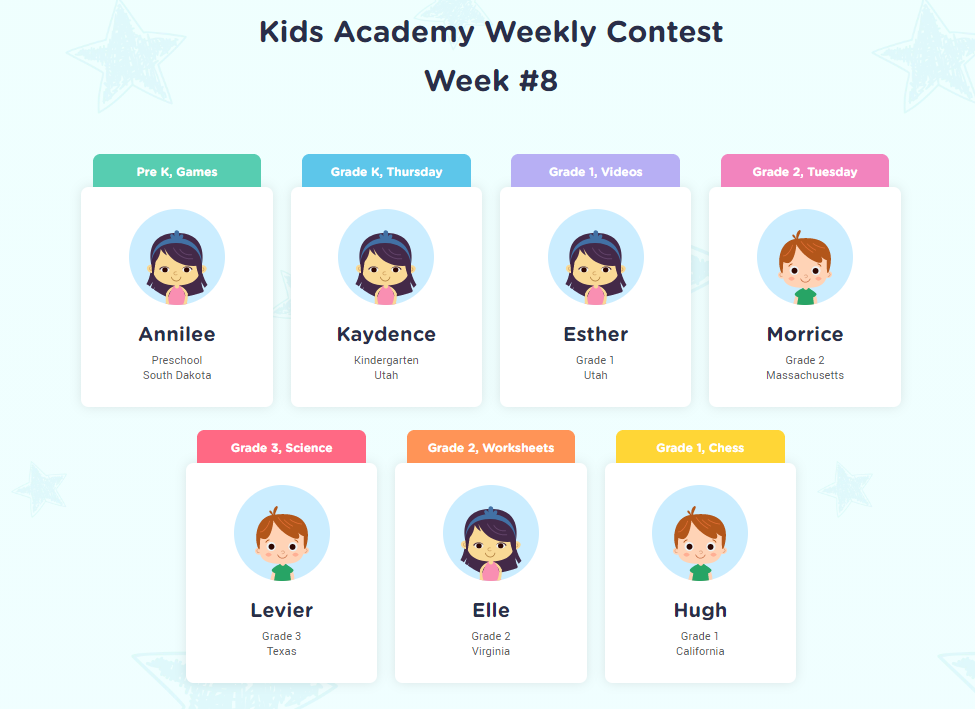Understanding punctuation Worksheets for Ages 4-5
3 filtered results
-
From - To
Explore our vibrant collection of 'Understanding Punctuation Worksheets for Ages 4-5' designed to introduce young learners to the basics of punctuation. Perfect for preschool and kindergarten students, these engaging worksheets focus on foundational punctuation marks like periods, question marks, and exclamation points. Crafted with age-appropriate activities, visuals, and interactive exercises, these worksheets make learning fun and effective. Ideal for both classroom use and home education, they help develop early literacy skills by teaching the importance of proper punctuation in everyday writing. Encourage your child's language development and confidence with our expert-designed punctuation resources.


Sentences That End in an Question Mark Worksheet


Sentences That End in an Exclamation Mark Worksheet
Understanding punctuation is fundamental to early literacy development for children aged 4-5, forming the building blocks for more advanced reading and writing skills. Punctuation marks, like periods, commas, and question marks, provide crucial cues that help young minds comprehend the structure and meaning of sentences. Introducing these concepts early empowers children to grasp how sentences are organized, aiding in both their reading speed and comprehension.
When parents and teachers prioritize punctuation, they also facilitate smoother communication. Proper punctuation helps children convey their thoughts more clearly in writing, preventing misunderstandings. Moreover, early exposure to punctuation aids in developing listening skills. For instance, understanding a question mark signifies an interrogative sentence can train kids to listen for answers.
Encouraging punctuation awareness nurtures an appreciation for reading. Books become less intimidating as children decode sentences more effortlessly, fueling their interest in learning. A focus on punctuation also supports broader cognitive skills, like attention to detail and critical thinking, since recognizing and using punctuation marks accurately requires increased mental effort and understanding.
In essence, understanding punctuation equips young learners with the tools needed for academic success and effective communication, making it a critical area of focus for both parents and educators during these formative years.

 Assign to the classroom
Assign to the classroom













